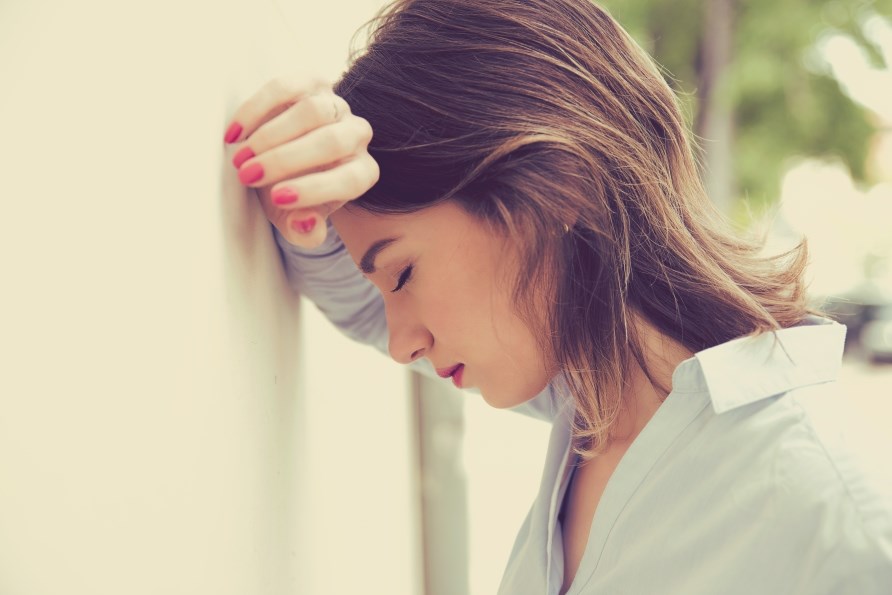Anxiety, stress and difficulty sleeping
Anxiety and stress are becoming more common in us humans, and often lead to difficulties relaxing and sleeping. Here, we give you several tips on how to try to fend off this pattern to get back into balance.
- Why do we get stressed?
- Physical tips for stress, anxiety & sleep problems
- Other aids
Why do we get stressed?
The fact that the body reacts with stress is due to hormones such as adrenaline which, among other things, contribute to an increased heart rate, focus and alertness. This is to prepare the body for fight or flight, which of course was very important for us humans when we had to go out and hunt to feed ourselves. In addition to adrenaline, the hormones noradrenaline and cortisol are also released in response to stress.
Stress can be hard and stressful when we don’t have control over it, but in smaller doses it can actually be really good. Appropriate levels of stress can, for example, help you complete tasks faster by contributing to an increased focus, but can also be helpful when working out due to a temporarily increased state of alertness. From the beginning, this probably comes from the time when humans lived on the savannah, where temporary stress could be an attack from a predator. The difference today is that we face more constant pressure and stress from our work and family life, while the stress used to pass quickly.

If the stress becomes too great and the brain perceives the situation as being too difficult to cope with, the body can also react by "playing dead". You can then experience various symptoms such as fatigue, dizziness, muscle weakness, and it’s not too uncommon to feel faint. When you feel that stressed, you may also want to shield yourself from your colleagues, friends and family. In addition, it is easy to get tired, sad and depressed.
tips for stress, anxiety & sleep problems
To prevent stress from taking over and also improve your sleep, it is good to be able to recognise signals you have previously experienced, and at the same time try to identify the elements in everyday life that lead to you becoming stressed. The following tips are effective in the early stages of stress and can help prevent problems getting worse.
- Be sure to take a break from your stressful day at work with a workout, a walk or a few minutes of stretching. Physical activity can be a really good way to disconnect from all the hard work for a while, and for many it also makes for a good break between work or study and leisure. In addition, physical activity contributes to the release of substances such as endorphins, which contribute to a feeling of well-being.
- With the help of positive thoughts, you can reduce your stress level. It may sound silly, but trying not to think of stressful words like "must", and changing the same sentence to have a more positive tone can sometimes reduce stress.
- Do relaxation exercises. There are a plethora of breathing exercises, mindfulness exercises and focusing exercises, so try what feels good for you. These rarely require any equipment, but it is enough that you sit in your own space for a while. Doing relaxation exercises before getting ready to sleep can be really good for those who have difficulty falling asleep.
- Review what the stress is caused by. Is it temporary, for example due to a stressful project at work, or does the stress feel permanent? You may need to make changes to your lifestyle and, in particular, to how you prioritise your time. Don’t be afraid to ask for help handling various tasks and carefully select what you want to spend your time and energy on.
Other aids
For those who still have difficulty falling asleep, additional aids may be needed. A good example is an eye mask that blocks out light, which can be wonderful for those who find it hard getting the room dark enough. These also work well for those who have a partner who likes using their laptop or tablet in bed. A weighted blanket is also a popular aid for unwinding and sleeping better.
Earplugs can also be an option if you are a light sleeper and are disturbed by noise from neighbours or traffic outside. For some, a pair of wireless headphones are even better, so that you can listen to soothing music or natural sounds. Many people drink a tasty and warm herbal tea before bedtime. Chamomile tea is commonly used as a tea to drink before bedtime. Herbal medicines with St. John's wort or valerian are further options, of which those with St. John's wort are used for mild depression and mild anxiety, while those with valerian are used for mild anxiety and sleep disorders.

